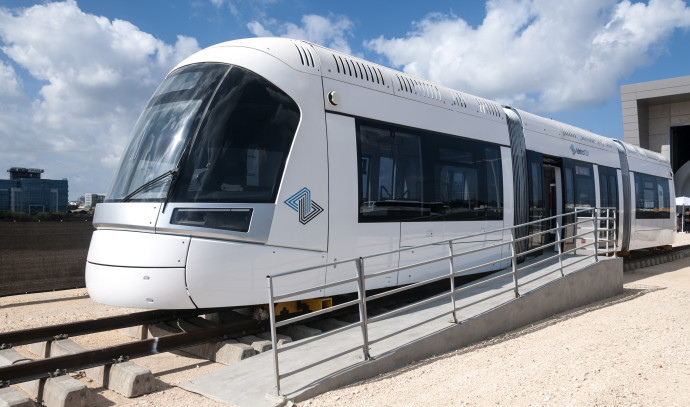The long-delayed Tel Aviv Light Rail will not operate on Shabbat and holidays, it was announced on Tuesday. The decision is a blow to activists who had been pushing for the opening, both of the light rail and buses, on Shabbat.
Tel Aviv’s much anticipated partly-above ground and partly-below ground train broke ground in 2011 with the most recent promise to be opened by the end of 2022. The project continued to see multiple delays – partly due to a malfunction in the brake system – which has led to Tel Avivians watching empty trains go by for months now.
However, the delays are over for some residents. This is as the Red Line, which runs from Bat Yam to Petah Tikva through Jaffa and by Rothschild, is set to open next Friday, August 18. The line consists of 34 stations and will run throughout the day with a frequency of every six minutes.
City planners hope the new project will ease congestion and bring convenience to the life of residents.
Not everyone was happy though given the closings on Shabbat and the holidays. Residents were hopeful it would be operating due to promises made by former transportation minister Merav Michaeli. Her comments were never followed up by law, so it was never set in stone.
One of the major reasons given for not operating the Red Line on Shabbat is that it runs through Bnei Brak, one of the country’s most densely populated haredi communities. Given the makeup of the government, it was next to impossible this would pass.
Tel Aviv protesters criticize not running the light rail on Shabbat
The Kaplan Force protest group, which began with the goal of protesting judicial reform but has now openly stated it will oppose most actions by the government, has announced they will protest the closing, planning to sit in and disrupt the train’s operating schedule.
Critics of the closure point to issues such as religious coercion, traffic, and the fact that many will either be unable to travel on Saturdays or be forced to pay for taxis. This is especially as Tel Aviv is a primarily secular area, as opposed to Jerusalem where the light rail has never operated on Shabbat and holidays and like will never.
On the other side, proponents have cited reasons such as maintaining the Jewish character of the state as well as class issues, such as putting those on the lower income levels in situations where they would be forced to work on a day that would otherwise be for rest.
A petition was submitted to the High Court of Justice asking to force the government to operate on Shabbat and holidays. In response, they said that the decision is consistent with government policy and action, as well as the status quo on public transportation during days of rest.



